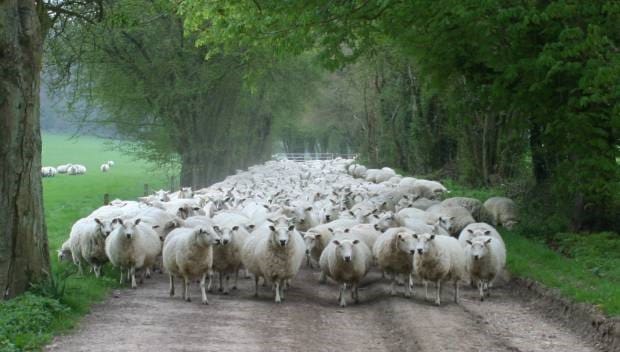
THE United Kingdom should close its doors to sheep meat imports if a Brexit deal with the European Union could not be negotiated, the country’s peak National Sheep Association has suggested.
The National Sheep Association believes that with time running out for the UK to secure a Brexit deal with the EU, let alone one that works for sheep farmers, urgent and important steps are needed.
The NSA has released its own document outlining the “vital and urgent steps” needed to protect the UK sheep industry in the event of a ‘no deal’ Brexit.
The latest MLA EU sheep meat market snapshot said that although it is lucrative, the EU’s restrictive import regime and large domestic red meat industry has limited Australia’s access and growth in the market.
However, more than 70 percent of Australia’s $152.6 million in sheep meat exports to the European Union were destined for the United Kingdom in 2017.
The NSA has repeatedly expressed its concern at the serious damage a no-deal scenario would cause the UK’s sheep sector, due to the volumes of lamb currently exported to the EU and has now set out what steps need to be taken to enable the country to react to and survive such a period of extreme volatility.
The NSA said the UK currently exports about 35 percent of production and, of that, 96pc goes to EU destinations. The UK is a net exporter of sheep meat, but only marginally, producing about 290,000 tonnes, exporting 90,000 tonnes and importing 100,000 tonnes.
The association has argued that if exports are lost and imports continue, prices will collapse and many farmers will struggle to sell stock.
NSA chief executive Phil Stocker last week said a no-deal Brexit would be highly damaging to the UK sheep sector.
“If we lose access for UK sheep meat, even for a few months, and still allow imported lamb to come in then our markets will quickly become flooded and prices will plummet, with farmers feeling the brunt of it.
“NSA believes the only option in that scenario would be to close our doors to sheep meat imports and focus on getting all our production into our own domestic markets,” he said.
“It would give us challenges with seasonality, as lamb production fluctuates at different points in the year but using public procurement markets such as our armed forces, schools and hospitals, and investing in long-term cold storage would allow us to make the most of what would otherwise be a catastrophe.”
NSA said getting the UK listed as a third country able to trade with the EU will be a matter of urgency in a no-deal scenario, although sheep meat exports into Europe will be affected by WTO terms and tariffs. The association said expecting wider world markets to absorb what currently goes to the EU in the short to medium term is unrealistic, “and so NSA says the UK Government must offset tariff costs in order to allow trade to continue to function.”
Mr Stocker said the UK Government says it would not pay the £40 billion ‘divorce bill’ if no deal is reached and it is not unreasonable to expect that money to be reinvested to enable industries to continue to operate.
“Food producing industries hardest hit by the failure to secure a deal should be prioritised, as output cannot be turned on and off like a tap.
“Ewes are already pregnant with the lambs we may not be able to sell next year; it is too late to stop that product needing a marketplace,” he said.
“An immediate investment in building our domestic markets can be viewed as a very positive move and then, as trade allows, we can review rebuilding our exports and trading with other global partners.
“The UK is better placed to grow grass and raise sheep than most other nations around the globe and it would be a travesty if this traditional, yet sustainable and renewable industry was allowed to fall apart because of ill thought-through disruptions in trade,” Mr Stocker said.
The NSA policy position on a no deal Brexit can be viewed at www.nationalsheep.org.uk/policy-work .

HAVE YOUR SAY